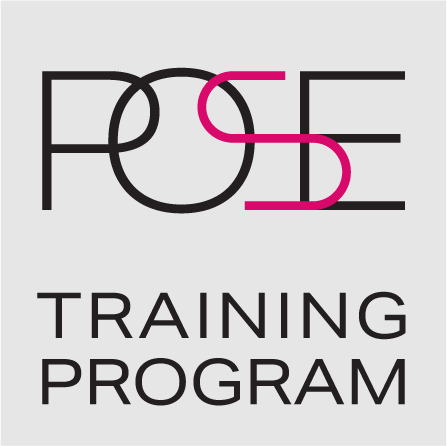This post also appears on the CSCCE website.
CSCCE is currently partnering with Karthik Ram at UC Berkeley on an NSF grant to provide a training program for awardees of NSF’s Pathways to Enable Open-Source Ecosystems program. The pilot version of the POSE Training Program began in April 2023, with more than 60 POSE awardees joining Training Program staff for a six-week program of workshops and webinars. You can find out more about the pilot syllabus on the pose.training website.
In this blog post, we share more about how we onboarded participants to the pilot program, and how we are gathering their feedback to ensure future iterations of the program are meeting the needs of leaders in open-source ecosystem creation and sustainability.
Onboarding as a pathway to community
The POSE Training Program is largely being administered by staff at the Center for Scientific Collaboration and Community Engagement (CSCCE). For CSCCE’s flagship training program, Scientific Community Engagement Fundamentals, we have developed a robust and carefully scaffolded onboarding pathway that ensures course participants arrive at their first session feeling prepared to engage with the content under consideration and connect with their peers.
We took this strategy and tailored it to the POSE Training Program. The process can be thought of in three discrete steps:
- Registration – We asked all prospective participants to fill in a registration form. Through this form we were able to learn more about each participant, including which POSE award they are working on and whether they need any accessibility accommodations. We also used this step to gather headshots which we then used (with permission) to create a directory of participants.
- Technical setup – After registering with us, participants then received a series of emails describing i) how to access the Slack workspace for the program, ii) how to log in to Canvas LMS and access course materials, and iii) where they could go to ask for help. These emails included Quick Start guides and tips for getting set up on both platforms, plus a logistics sheet explaining the course format, community participation guidelines, and expectations for participation.
- Orientation and initial engagement – One week before the first workshop of the POSE Training Program, we hosted a 90 minute live orientation session on Zoom where participants received a presentation summarizing what to expect and guidance on participation norms. We included an activity in Padlet to facilitate participants getting to know each other across the 25 different POSE projects, and closed the session with a Q&A for anyone to ask questions about accessing Slack and Canvas. During this pre-program period, we also prompted introductions on Slack so that participants could begin exploring the workspace which will form an ongoing community of practice for all current and future awardees throughout and beyond the training sessions.
How do we know if this process works?
We’re tracking several key metrics as part of this onboarding – including whether every POSE project team has registered for the program (they have!) – and we’ll be using this information to guide our future planning.
We also invited feedback from participants on the process, and an early request was for there to be a directory of everyone involved. In response, we built a new page on the pose.training website that curates information about all of the individuals involved and the projects they are working on.
Through this intentional and responsive onboarding process, we hope that participants feel welcome, comfortable, and energized to get started with the training program!
Evaluating this pilot – and iterating for the future
As a pilot, this offering of the POSE Training Program is key to tailoring and improving course content for future versions. To that end, we are paying particular attention to evaluating participant experience as we go along. We are working with Patrica Campbell, a professional evaluator, to gather information about the quality and impact of the training and the ways it can be improved.
Pat will be working with the project PIs to assess their expectations going into the Training Program, what they see as the most pressing needs of future participants, and to learn more about open-source ecosystem implementation. She will also be following up with them after the program ends to see if expectations were met, and all participants in the program will be able to submit feedback via a final evaluation survey.
We are also gathering formative feedback via email, Slack, and during live sessions, and we will take all of this into account as we move forward with developing the POSE Training Program over the next few months.
If you have any questions, please don’t hesitate to contact info@pose.training.
Featured image credit: Jamie Templeton on Unsplash



No responses yet